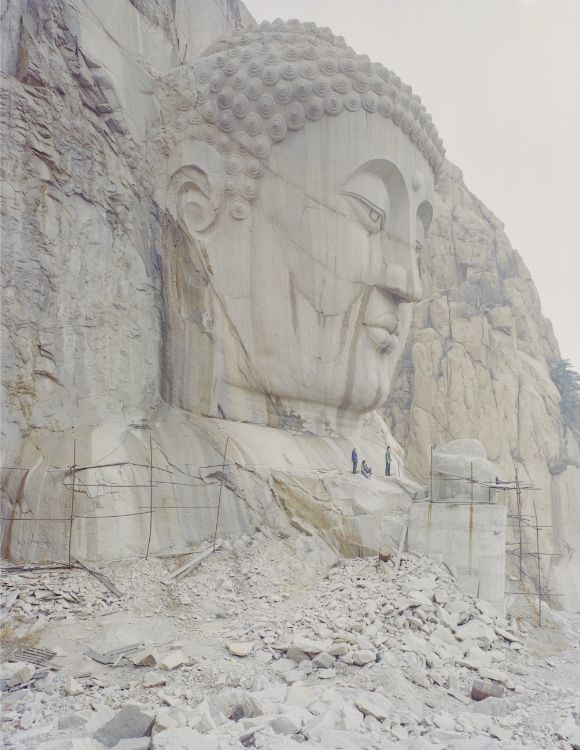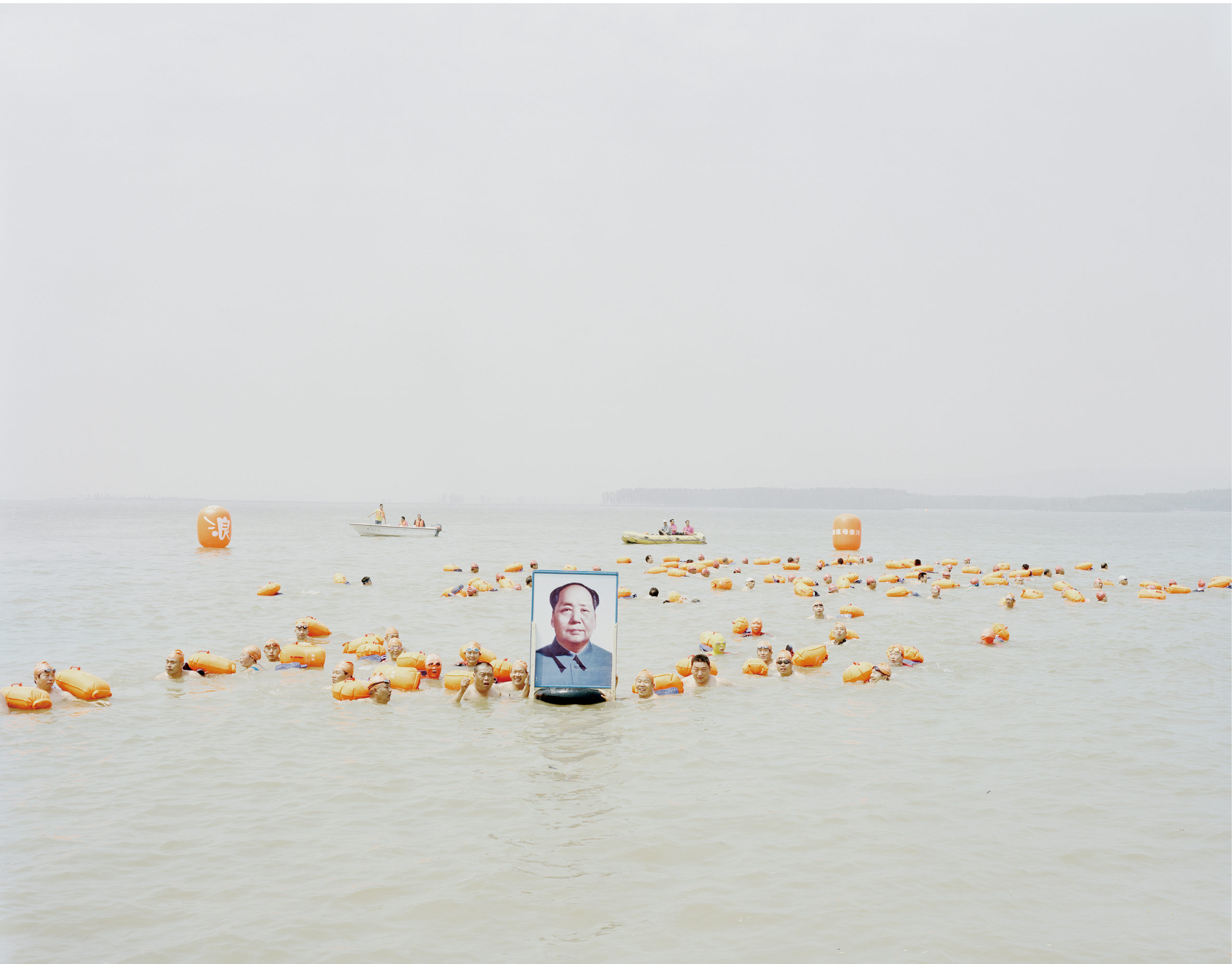Zhang Kechun’s journey along the Yellow River in China was similar to that of the eminent Chinese sociologist and writer, Cao Jinqing. Cao published his influential documentation of life along the river in China Yellow River: Reflections on Rural Society (2000). Zhang shows the integration of the rural community into the market economy that Cao describes. He photographs the river with awe and respect but also with compassion towards the inhabitants who carve out livings amongst the wreckage and abandoned structures. The pattern of flooding and droughts along the river causes its path to change, rendering urban structures unusable, leaving them to be claimed by nature. The people in Zhang’s photographs are not only dwarfed by the scale of the landscape but also endangered by the speed at which it is altered by environmental and industrial change.

A Buddha Head in the Mountain 2015. Zhang Kechun
Writing about the changing way of life in rural China since the breakup of the communes in the early 1980s, Cao documents the tense relationship between the people, the local government and the ruling Communist Party. He notes that households now buy consumer goods that were previously outlawed under Maoist rule. Zhang photographed the ultimate icon of modern China – Chairman Mao Zedong – floating on a raft surrounded by swimmers in the river in Henan Province. Whereas the West remembers Mao as a despot not dissimilar to Stalin and Hitler, he is respected as the ‘Founding Father of Modern China’ by many Chinese, and credited with bringing unity and stability to a country previously devastated by civil and international conflict. In Zhang’s photograph nostalgia for the pre-industrial countryside is interwoven with the idolisation of Mao.
Despite the charging pace of industrialism in Zhang’s China, tradition persists. As Cao says, the river embodies the “country’s past, present and future.” Rural Chinese culture and the socialist state tussle in the photographs but an affinity between the people and their changing landscape is constant. Life along the river is hard but the people are adept at adapting. The luxurious calm that emanates from Zhang’s photographs does not rely on the pastel hues of the dusty plains and silt-laden river, but on a portrait of the people reconciled with their landscape. At work, rest or play, the people of Zhang’s China are masters of harmonising with the ever-changing environment
(By Flora La Thangue)
